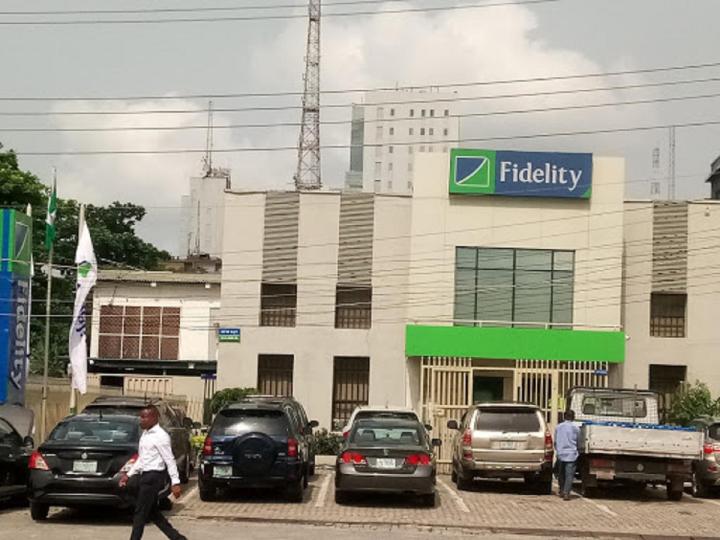Fidelity Bank Plc has posted a significant growth in its earnings for the first half of 2025, recording N748.7 billion in revenue, reflecting robust performance across its core banking operations and strategic investments. The figures, released in the bank’s half-year financial statement, underscore the institution’s resilience and ability to navigate challenging economic conditions while expanding its market footprint.
According to the report, the bank’s profit before tax (PBT) and other key financial metrics showed marked improvements compared to the corresponding period in 2024. The growth has been attributed to increased interest income, higher fee-based revenue, and effective cost management. Fidelity Bank noted that its strategic focus on retail banking, digital solutions, and SME financing contributed significantly to the positive performance.

Interest income, the bank’s primary revenue driver, rose substantially as a result of expanded lending activities to corporate clients and small and medium enterprises (SMEs). Fidelity Bank has consistently focused on building a diversified loan portfolio, which has helped mitigate sector-specific risks and optimize returns. Analysts observed that the bank’s ability to balance risk and profitability contributed to its impressive half-year earnings.
Non-interest income, generated through fees, commissions, and other banking services, also saw significant growth. The bank’s digital banking platform, which offers innovative solutions for retail and corporate clients, has enhanced customer engagement and contributed to fee income. Fidelity Bank has reported increased adoption of its mobile banking applications and online services, reflecting a broader trend in Nigeria’s banking sector toward digitization and convenience-driven banking.
Cost-to-income ratio remained relatively stable, demonstrating the bank’s continued focus on operational efficiency. By optimizing processes, leveraging technology, and rationalizing expenses, Fidelity Bank has maintained profitability while sustaining growth. The bank’s management highlighted that prudent cost control measures, combined with revenue diversification, remain central to its business strategy.
Fidelity Bank also reported improvements in its asset quality, with non-performing loans (NPLs) maintained at manageable levels despite broader economic challenges. The bank’s risk management framework, which emphasizes early detection of credit stress and proactive intervention, has been credited with sustaining healthy portfolio performance.
Commenting on the results, the Managing Director of Fidelity Bank, stressed that the half-year performance underscores the bank’s commitment to delivering value to shareholders, customers, and the broader economy. The executive highlighted that strategic investments in digital infrastructure, customer-centric solutions, and human capital development have contributed to the improved financial outcome.
The bank’s performance reflects resilience amid economic pressures, including fluctuating foreign exchange rates, rising inflation, and global economic uncertainties. Analysts have praised Fidelity Bank for navigating these challenges effectively, leveraging a diversified business model to sustain growth.
In addition to traditional banking services, Fidelity Bank’s continued focus on supporting SMEs and retail clients has strengthened its competitive positioning. The bank has implemented initiatives to provide financial solutions tailored to the needs of small businesses, enabling them to grow and contribute to the national economy. These initiatives include access to working capital, trade finance, and advisory services.
Investor sentiment toward Fidelity Bank has been positive, with market analysts highlighting the bank’s earnings growth as a reflection of strong corporate governance, strategic planning, and prudent risk management. The results have reinforced confidence in the bank’s ability to deliver consistent returns and maintain sustainable growth in a competitive banking environment.
Looking forward, Fidelity Bank plans to sustain its growth trajectory by deepening its customer engagement, expanding digital offerings, and continuing to support economic activities across various sectors. The bank has emphasized innovation, operational excellence, and financial inclusion as key pillars of its strategy for the remainder of the fiscal year.
In conclusion, Fidelity Bank’s half-year performance, with earnings reaching N748.7 billion, demonstrates its strong financial health, operational resilience, and capacity to navigate Nigeria’s complex economic landscape. The growth in both interest and non-interest income, coupled with effective risk management and cost efficiency, positions the bank well for sustained profitability and value creation for its shareholders and stakeholders.
Support InfoStride News' Credible Journalism: Only credible journalism can guarantee a fair, accountable and transparent society, including democracy and government. It involves a lot of efforts and money. We need your support. Click here to Donate
